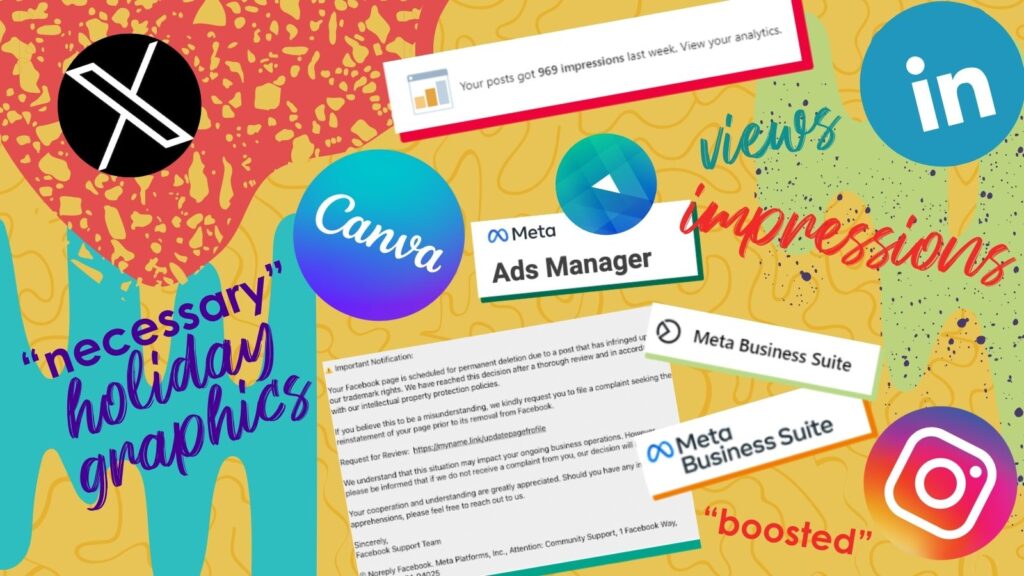If there’s one thing we get asked all the time, it’s “how long will it take until my brand/website/product shows up on the first page of Google?”
What a question. Client expectations range from literal hours after website launch to asking why they aren’t on Google before a website has even been pushed live. We understand this is a really complex topic (otherwise we wouldn’t get asked all the time, would we?) so we decided we’d give inquiring minds a run down on what the heck SEO is, how long it takes to work, and why it’s an ongoing process.
SEO Timelines in a Nutshell
If you don’t read the rest of the blog, at least read this: it takes at least a few months for organic SEO efforts to have an impact…and that’s IF you have a website for the brand. You’re not going to see your site on the first page of Google the day it launches, no matter how great we are at SEO or how beautifully your site is built. That’s just not how it works.
SEO is essentially optimizing a website so Google and other search engines can find what they want and so users get valuable, relevant content. Because of that, it’s an ongoing process that generates results after a series of weeks or months.
That’s also why we work with our clients to drive traffic to a new (or existing) site from social, PR efforts, and everything else in the integrated comms toolbox. It helps users find what they’re looking for even before they (or Google) know what they want in the first place. Then Google remembers they want it, and when they search for it again, their personalized search results pull it up higher in the list to make their lives easier.
Sounds straightforward enough? Now buckle up. It’s about to get nerdy.
It’s Time to EAT
When it comes to getting a site to show up in search results, there are a few different ways to get ahead of the pack. One of those is a catchy little acronym called EAT.
Okay, so EAT isn’t a direct ranking factor, but all that means is that Google isn’t measuring scores relating to EAT as determinants of where the site shows up. That’s…confusing, we know, so take it straight from the keyboard of someone who works at Google and knows his shit:
Is E-A-T a ranking factor? Not if you mean there's some technical thing like with speed that we can measure directly.
— Danny Sullivan (@dannysullivan) October 11, 2019
We do use a variety of signals as a proxy to tell if content seems to match E-A-T as humans would assess it.
In that regard, yeah, it's a ranking factor.
It’s pretty important.
Google’s team is told to review for a bunch of different things when selecting quality content, but three of those show up a lot in their guidebook. What are they? Expertise, Authority, and Trustworthiness (EAT!). In fact, that acronym shows up over one hundred times in the Google search evaluator team’s handbook. Crazy, right? So how do you hit those three things? We’re glad you asked.
Expertise
Search engines are smart. Google used to just slurp up keywords and say, “This page has a lot of keywords about a topic. Let’s show it to people!” Now, however, Google’s looking for content that has a lot of information users will find genuinely helpful about whatever topic they’re searching for.
For example, if someone’s looking for info about which car to buy, Google’s going to push a site that gives a lot of good, easy-to-digest content about the newest models, how they rank against each other, what type of car is best for each lifestyle, etc. Essentially, good content = more people want to read it = it’s served up higher by Google.
It’s also worth noting that Google’s looking for websites that update their content regularly to make sure it’s correct. Google also loves sites that add new content regularly, which is why we always encourage clients to blog. In short, if you’re an expert on a subject and your website reflects that, Google’s gonna love ya.
Authority
Google wants to make sure you have a right to talk about whatever the heck you’re talking about. The SEO community normally measures this with a metric called domain authority (which Google didn’t give us, but some cool experts in the SEO space managed to calculate on their own). Essentially, it’s a measure from 1-100 of how much of an authority your site is on whatever it’s talking about.
So where’s that score come from? Factors include things like how many sites link to yours (linking domains), how many times those sites link to yours (backlinks), how legit the sites are that link to yours (spam scores), how long your site has been around, and a lot more. If you have a high domain authority, your site is more likely to show up above another site with similar content with a lower authority.
To build that, we tackle the things we can control. That means again driving links from social (since each social link counts as one of those backlinks we mentioned), asking publications to link to the site in earned media, etc. You can’t control the age of the site and you can’t force people to link to it, but you can try to be proactive in reaching out and asking!
Trustworthiness
This one’s a little more straightforward. Is the site safe to browse? Is Google sure it’s for the organization it says it represents? That means the site includes contact information, has an SSL, links to a privacy policy, etc. It’s way more straightforward than the others up there, but still very important.
For sites that deal with some potentially sensitive topics, trustworthiness is a bigger deal. That’s when we get into…
Your Money, Your Life
We know. It sounds like the sort of thing a flippant extended relative says when you tell them you bought a condo you never visited…is that just us?
Anyway, essentially what Your Money, Your Life (YMYL) means is if a site is going to potentially impact your financial or physical wellbeing, Google’s gonna hold it to higher standards. That includes sites that talk about finances, medicine, healthcare, and current events. Essentially, YMYL is a built-in system to cut down on ranking disinformation higher than accurate information. It’s good (in theory) because it protects people from info or services that could harm them. However, if you set off Google’s alarm bells, well, you’ll get docked hard because of this. Annnd that’s when EAT matters more than ever. If you focus on those three areas, chances are you’ll get off of the YMYL blacklist and into the clear.
Other SEO Factors
But wait! There’s more.
Tackling EAT and YMYL are ongoing things, since all of those elements evolve and are evaluated pretty consistently. But there are more technical things that impact SEO that can be knocked out more quickly. Those include stuff like:
- Page titles
- Focus keywords
- Header tags (making sure you have one header 1 per page, etc. Sort of like using headings and subheadings in an academic paper)
- Schema markup (making sure Google can pull things like reviews, events, etc. into results)
- Site performance
- A bunch more!
Core Web Vitals
When it comes to site performance, the three main ranking factors are called Core Web Vitals. These have a lot of technical names under them, and since we know this blog is super long already, we’ll summarize and oversimplify:
- Largest Contentful Paint (LCP): How long does your site take to load?
- Cumulative Layout Shift (CLS): Does your site shift around a lot as elements load in? Basically, if you click on a button, is that button really there, or is it waiting on the image to the left of it to load in and push it over before you can actually click on it?
- First Input Delay (FID): If I click it, will it load or do I have to wait and wait and wait for the button to load the page I really wanted to visit in the first place?
Essentially, if your site does all of those things well on mobile, you’re good! Not sure how to figure that out? Check out SEO Audits for Dummies. Fun fact: Google doesn’t care at all about your desktop site.
Annnnyway, take all that stuff, mash it together with a few other things that would make this blog about twice this length, and you get SEO in a nutshell. Then Google crawls through all that, measures the ongoing traffic to your site, how people engage with your content, etc. etc. and spits you out in search results based on all of that (along with that user’s past behavior, language, location, blah blah blah).
By this point, we’re hoping it makes sense why sites take a while to shift around in results. SEO is a very long process that can have huge results, but it takes a long time to really get going. Luckily, if you’re looking to jumpstart your SEO efforts (or get to the top of results through ads), we know a few people who might be willing to help (spoiler: it’s us).









